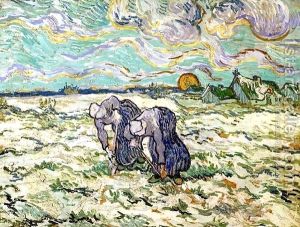I have recently been reading through the book of Job using the new translation of Robert Alter that I received for Christmas. The writer of Job obviously had a keen eye and deep appreciation of nature as is evident in much of the language used throughout the book. Here is a classic example in Chapter 4, where we have an obvious allusion to farming — plough-plant-reap — wrapped up in a standard moral teaching:
As I have seen, those who plow mischief, those who plant wretchedness, reap it. (Job 4:8)
We then move to the animal kingdom, where the lion is used as another line of evidence in the case for the traditional system of retribution:
The lion’s roar, the maned beast’s sound – and the young lions’ teeth are smashed.
The king of beasts dies with no prey, the whelps of the lion are scattered. (Job 4:10-11)
Apparently there are five different words in Hebrew for lion and the writer of Job demonstrates his impressive lexical wealth by using all five within two sentences creating a headache for the translators!



